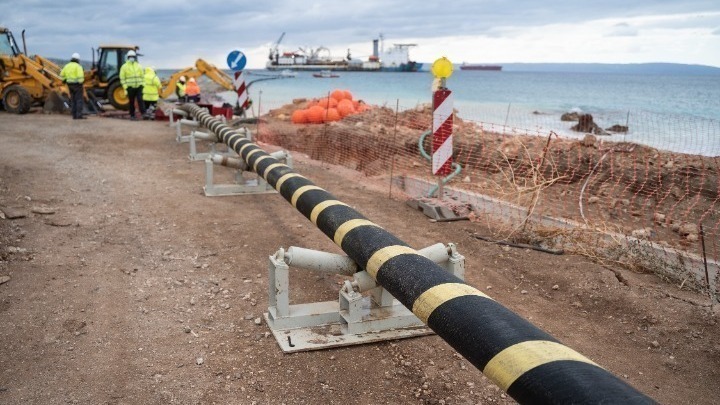In a move to slash electricity costs and end its energy isolation, Cyprus has approved the construction of a €1.9 billion ($2.1 billion) undersea power cable connecting its grid to Greece. The announcement was made Tuesday by Energy Minister George Papanastasiou.
The 1,000 MW cable, a project of significant importance to the European Union, has secured €657 million ($735 million) in EU funding. To shield Cypriot taxpayers from increased electricity bills, the Cypriot government will contribute €25 million ($27.8 million) annually during the five-year construction period, covering 63% of Cyprus's share of the costs. These funds will be sourced from EU emission trading system revenues.
Expected to be operational by the end of 2029, the cable is a key component of a larger energy strategy that includes introducing natural gas to the island nation. Papanastasiou stated this plan aims to "further accelerate the country’s medium-term economic development and the welfare of its citizens.”
Benefits for Consumers and Investors
Officials estimate that the 900 kilometer (560-mile) cable could reduce Cypriot electricity bills by up to 40%. Operating costs will be shared equally between Cypriot and Greek consumers. While an additional €36 charge will be added to Cypriot electricity bills to cover operating costs, the overall savings are expected to be substantial.
The project boasts a guaranteed return on investment of 8.3%, attracting interest from potential investors, including entities from the U.S. and the UAE’s TAQA energy and water company. Cyprus is also exploring the possibility of becoming a stakeholder in the company that will manage the cable.
Regional Impact and Future Expansion
With an operational lifespan of approximately 35 years, the cable could eventually extend beyond Cyprus to connect with Israel's electricity grid. Israel's Energy Minister Eli Cohen highlighted the cable’s significance as a “top priority” that would “strengthen energy security in the region.”
This decision comes after weeks of negotiations between Cypriot officials and the cable’s Greek operator, the Independent Power Transmission Operator, to address construction risks and financial viability. To mitigate risks, such as potential third-party interference, the Cypriot government will disburse its €125 million contribution in stages.
France’s Nexans will construct the cable, while Germany’s Siemens will build the onshore transformers. While the undersea route has been mapped, additional surveys may be required in areas with challenging terrain to determine if trenches are needed for cable protection.

